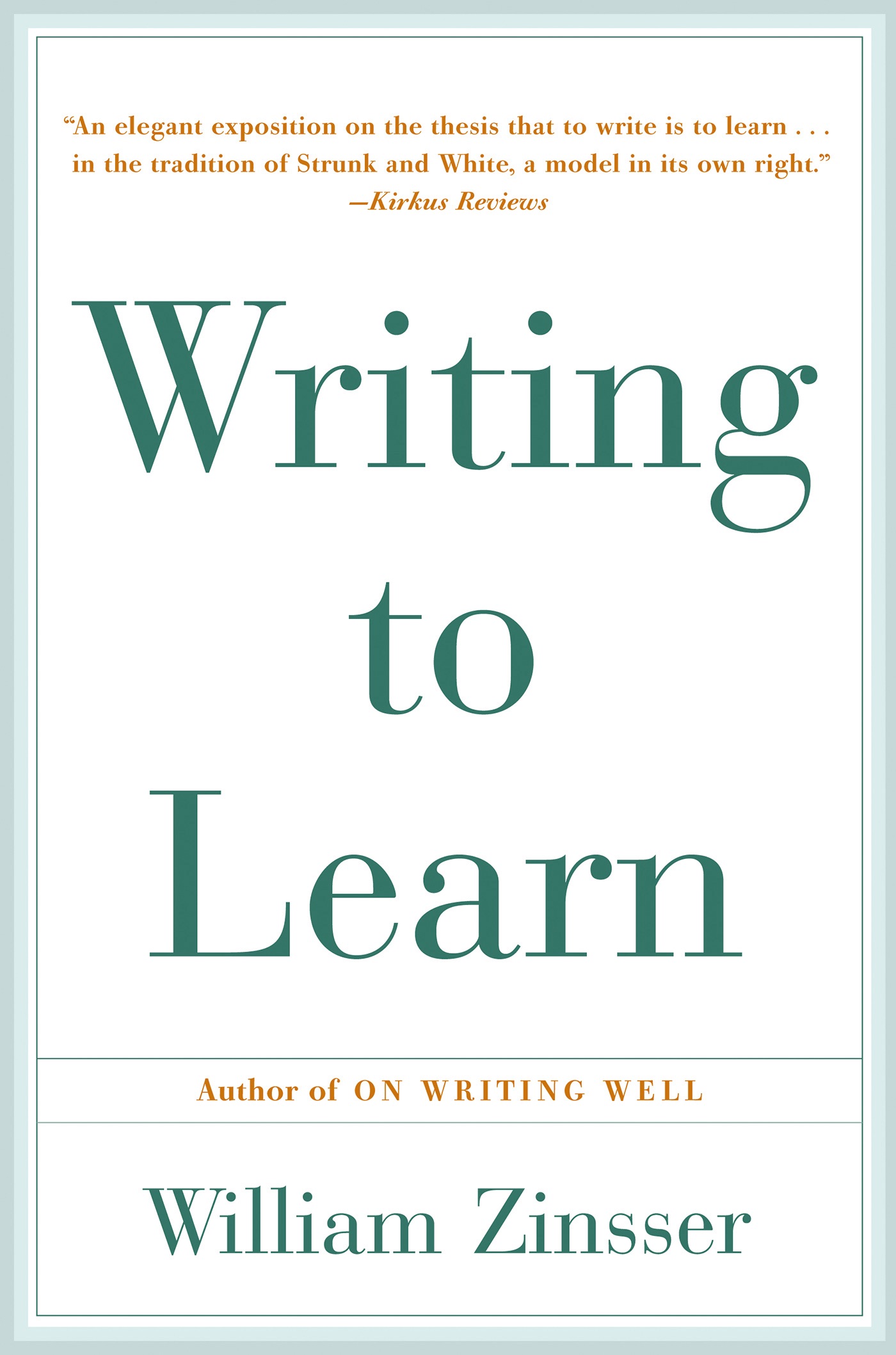
Writing to Learn

Writing to Learn: How to Write - and Think - Clearly About Any Subject at All
William Zinsser • 2 highlights
amazon.com
While we naturally understand that writing is a good way to share ideas with others, we under-appreciate just how much good writing helps us think about an idea ourselves. Writing is not only a means of communication, it enables us to practice reasoning.
fs.blog • How to Think: The Skill You've Never Been Taught - Farnam Street
Writing about something teaches you about what you know, what you don’t know, and how to think. Writing about something is one of the best ways to learn about it. Writing is not just a vehicle to share ideas with others but also a way to understand them better yourself.
Farnam Street • Why Write?
Writing about something teaches you about what you know, what you don’t know, and how to think. Writing about something is one of the best ways to learn about it. Writing is not just a vehicle to share ideas with others but also a way to understand them better yourself.
Farnam Street • Why Write?
how writing can help you learn and think better
open.substack.com